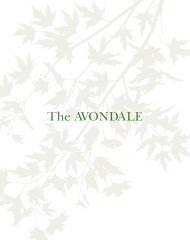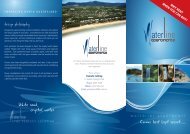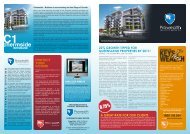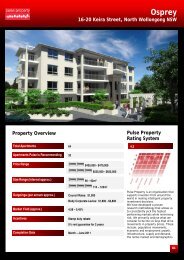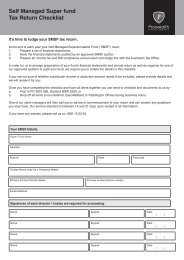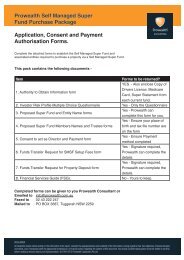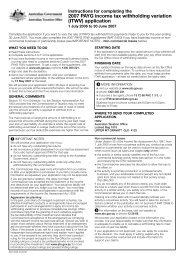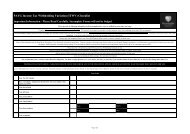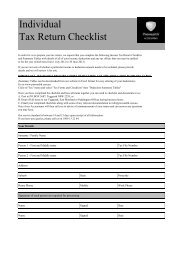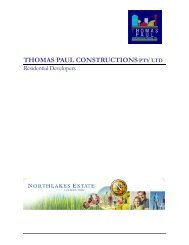Truck drivers - claiming work-related expenses - Prowealth
Truck drivers - claiming work-related expenses - Prowealth
Truck drivers - claiming work-related expenses - Prowealth
Create successful ePaper yourself
Turn your PDF publications into a flip-book with our unique Google optimized e-Paper software.
http://www.ato.gov.au/individuals/PrintFriendly.aspx?ms=individuals&d...<br />
6 of 9 12/11/2012 11:47 AM<br />
by your employer. This means you cannot claim a deduction for your accommodation, as you did not incur an expense.<br />
If you are <strong>claiming</strong> travel <strong>expenses</strong> and you received a travel allowance from your employer, you<br />
must record the allowance as income at item 2 on your tax return.<br />
For more information about <strong>claiming</strong> deductions for your meal and incidental <strong>expenses</strong>, refer to<br />
Work-<strong>related</strong> travel <strong>expenses</strong>.<br />
When you cannot make a claim<br />
Generally if your travel did not involve an overnight stay you cannot claim meals, even if you received a travel allowance.<br />
Example 6<br />
Matthew is a truck driver who transports a load of cement from Sydney to Canberra and then returns to his base in Sydney the<br />
same day. He buys food and drink during the course of the trip. As Matthew will return home to sleep, he cannot claim a<br />
deduction for the food and drink he bought while on the road, even if his employer paid him a travel allowance.<br />
Keeping records of your meal and incidental <strong>expenses</strong><br />
You can claim a deduction for the full amount of your meal and incidental <strong>expenses</strong> without keeping all your records if:<br />
you receive a travel allowance that could reasonably be expected to cover your meals and <strong>expenses</strong> incidental to the travel (a<br />
token amount you receive as a travel allowance is not accepted as reasonably covering such costs), and<br />
your meal and incidental <strong>expenses</strong> are equal to or less than the reasonable allowance amount.<br />
However, we may ask you to explain how you <strong>work</strong>ed out the amount you claimed.<br />
We set the reasonable allowance amount for your circumstances in an annual taxation determination that explains:<br />
when you don't need evidence of your <strong>expenses</strong><br />
the way in which you can claim them.<br />
For the 2009-10 reasonable allowance amount, refer to Taxation Determination TD 2009/15 -<br />
Income tax: what are the reasonable travel and overtime meal allowance expense amounts<br />
for 2009-10 income year?<br />
For the 2010-11 reasonable allowance amounts, refer to TD 2011/17 - Income tax: what are the<br />
reasonable travel and overtime meal allowance expense amounts for the 2011-12 income<br />
year? (as at 30 June 2010).<br />
Many truck <strong>drivers</strong> do not receive a travel allowance and will have to keep records of their meal and incidental <strong>expenses</strong> to support<br />
their claims.<br />
You claim your travel <strong>expenses</strong> at item D2 Work-<strong>related</strong> travel <strong>expenses</strong> on your tax return.<br />
Types of records<br />
Written evidence<br />
Written evidence can be:<br />
invoices, receipts or other documents showing your travel expense and travel allowance details. If it is too difficult to get a<br />
receipt for a meal you purchased - for example, if you purchase a meal from a vending machine - you can keep diary entries<br />
as your proof of purchase<br />
receipts or other documents (such as diary entries) for air, bus, train, tram and taxi fares, bridge and road tolls, parking and car<br />
hire fees.



